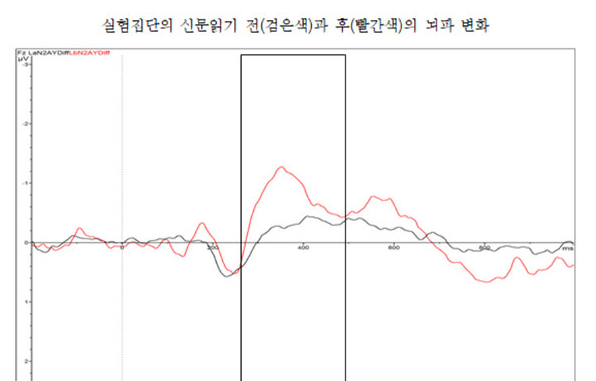
Description :
We conducted a study of analyzing the correlation between newspaper reading and brain activation by using EEG methodology commissioned by the Korean Newspaper Association.
The results showed that reading newspapers consistently improved attention and concentration.
We recruited 60 participants who do not usually read the newspaper for about two months from September 10 to November 14 of the last year(2019), and began an experiment to measure the effect of newspaper reading on the brain.
Participants were divided into two groups, the experimental group(reading newspaper everyday for a month) and the control group(maintaining their usual habit).
We examined three mental abilities, while measuring the brainwaves of the participants: (1) 'Executive function' (ability to find and analyze key information), (2) Affective Theory of Mind: Reading the Mind In the Eyes Test(RMET)' (empathic ability to recognize emotions shown in photographs of only the eye regions), (3) 'Social cognitive ability'.
The brainwaves and mental abilities of participants were measured twice before and after the newspaper reading task was performed. And then, we compared and analyzed them.
In the experimental group, after performing the task of reading newspaper for a month, the 'collision detection (N2)' factor was more amplified in the executive function test. It means that newspaper reading contributed to the improvement of attention. There was no significant difference in the control group. On the other hand, there were no significant differences between the experimental group and the control group in RMET and social cognitive ability test.
Prof. Hahn said, “This study showed the correlation between reading newspaper and brain activation by directly observing the cognitive changes affected by the newspaper reading training through EEG methodology that measures the electrical activity of the brain. It is different from previous studies that studied the effectiveness of reading newspapers using survey or interview method.”
Link
